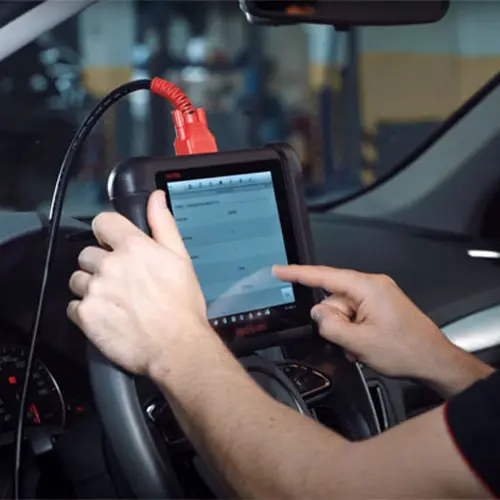This company has no active jobs
0 Review
Rate This Company ( No reviews yet )
About Company
Five Killer Quora Answers To Broken Key Repair
Broken Key Repair: Solutions for Common Lock Issues
Introduction
Keys are important tools in our day-to-day lives, enabling us to protect our homes, vehicles, and personal valuables. However, they can also break, leading to disappointments and hassles. Comprehending how to address broken key problems is essential for anyone desiring to keep their locks and ensure access to their home. This article covers different aspects of Broken Key Repair (Http://8.138.10.0), including typical causes, repair methods, and preventive measures to prevent future circumstances.
Typical Causes of Broken Keys
Keys can break for numerous factors. Understanding these causes can help in avoiding future events:
- Wear and Tear: Over time, keys can use down due to frequent use, causing weakened shafts that are most likely to break.
- Poor Key Design: Keys that are inadequately developed may lack structural stability, making them more prone to breaking under tension.
- Inaccurate Key Usage: Using extreme force to turn a key, particularly in a jammed lock, can easily result in a breakage.
- Ecological Factors: Extreme temperature levels or exposure to wetness can weaken metal keys, leading to brittleness.
- Lock Malfunctions: A malfunctioning lock can place excessive tension on a key, triggering it to snap throughout operation.
Signs of a Broken Key
Identifying a broken key typically features obvious indications. Here are some indications:
- Partial insertion into the lock: If the key can not be totally inserted or eliminated.
- Sudden resistance: If the key feels stuck when being turned.
- Noticeable divides or fractures: Inspecting the key can expose cracks or breaks in the metal.
- Incomplete engagement: The key might turn less than required to activate the lock.
Techniques for Broken Key Repair
When faced with a broken key, there are a number of methods to think about for repair. It is necessary to select the ideal one based upon your particular circumstance.
1. Remove the Broken Key
If a key breaks within a lock, the very first action is to remove the broken part:
- Use tweezers or needle-nose pliers: If a piece is sticking out of the lock, gently pull it out.
- Insert a key extractor tool: This customized tool can assist extract lodged parts more effectively.
| Tool | Best Used For |
|---|---|
| Tweezers | Shallow extraction |
| Key extractor tool | Deeply trapped key pieces |
| Lubricant spray | Easing extraction of stuck parts |
2. Superglue Method
For scenarios where a key has partially broken however is undamaged enough to stay grasped, the superglue technique may offer a temporary fix.
- Tidy the broken surface areas completely.
- Apply a thin layer of superglue.
- Hold the pieces together for a couple of minutes up until the glue sets.
Note: This method is not a long-term solution and ought to be utilized with care as the repair can easily fail under operational tension.
3. Metal Epoxy
For a more robust repair, metal epoxy supplies a stronger bond than superglue.
- Follow the directions on the epoxy product packaging for preparing the adhesive.
- Apply to the broken location and hold till set (typically a couple of hours).
4. Duplicate the Key
In instances where lock performance is necessary, producing a duplicate key is frequently the very best route:

- Visit a locksmith: Many locksmith professionals can duplicate keys rapidly and efficiently.
- Use a key-tracing service: Some locksmith professionals utilize tracing approaches to cut an identical key based on the remnants.
5. Lock Replacement
When keys consistently break, it may be due to lock issues instead of key integrity. In such cases:

- Consult a locksmith to evaluate the lock’s condition.
- Consider replacing the lock totally if considerable damage or wear is evident.
Preventing Key Breakage
Avoiding key breakage is often better than repair. Here are some practical suggestions:
- Limit force on keys: Always turn keys carefully to prevent unneeded stress.
- Routine key assessment: Check for wear and change keys showing indications of damage.
- Utilize a keychain: Prevent excessive flexing by utilizing a tough keychain.
- Lube locks: Ensure locks run smoothly to lower pressure on keys.
- Shop keys effectively: Avoid placing keys in environments that can trigger rust or corrosion.
FAQs About Broken Key Repair
1. Can I repair a broken key myself?
Yes, you can try to repair a broken key yourself using approaches like the superglue or metal epoxy techniques. Nevertheless, these are momentary fixes, and it is advisable to seek advice from a professional locksmith for a more resilient solution.
2. Is it worth repairing a broken key?
Sometimes, specifically with sentimental or special keys, a repair might be worth it. For standard keys, replication or replacement is usually more reliable and trustworthy.
3. How can I prevent my keys from breaking?
To prevent breakage, make sure that keys are not subjected to extreme force, routinely check them for wear, and keep locks well-kept.
4. When should I seek a locksmith’s assistance?
If you are unable to eliminate a broken key from a lock or if the lock breakdowns regularly, it’s best to seek a locksmith’s know-how.
Broken keys can provide a substantial inconvenience, but they are workable with the best method. By understanding the typical causes and offered repair techniques, people can react efficiently to key breakage. Drawing from preventive procedures will also help keep key stability and functionality. Ultimately, a proactive approach to key and lock upkeep can considerably reduce the frequency of these bothersome problems.


